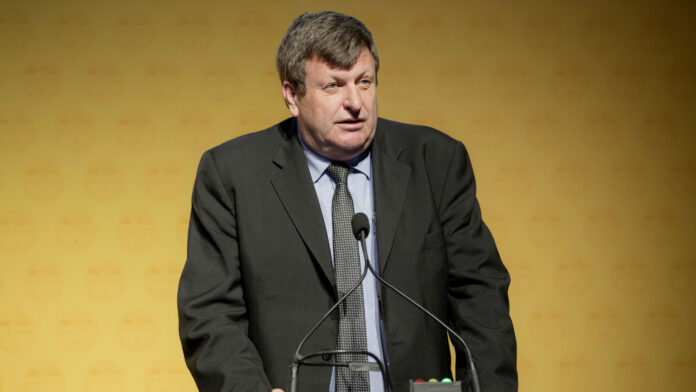
HARMONY Gold CEO Peter Steenkamp said the company would continue paying dividends despite warning that free cash would be constrained in the current financial year amid heightened capital spending.
In notes to its year-end numbers published today, Harmony sought to “remind our stakeholders that we are in a high capital investment cycle” which had “impacted free cash in FY22 and will continue into FY23 as we invest in our high grade assets and surface retreatment business”.
Capital spend in the current financial year would be R8.5bn. Some R8.2bn would be spent in expansions and mine recapitalisations in the subsequent 2024 financial year.
“We intend to be a consistent dividend payer,” Steenkamp said today in a press call. “We are in process of spending a lot of money on organic growth, but given the circumstances we will continue with that [paying dividends].”
Harmony announced a final dividend of 22 South African cents a share in line with its dividend policy of 20% of free cash. But the payout came against a backdrop of a basic earnings loss totalling 172 cents following impairments, predominantly on its Tshepong mine in the Free State province.
There was also a significant increase in all-in sustaining costs (AISC) of some 16% in rands to R835,891/kg which compares to a current rand gold price of R939,185/kg. In addition, Harmony acknowledged inflation on consumables such as steel and chemicals.
There was actually a capital underspend in the year under review of some R1.8bn as a result of a delay in the Zaaiplaats expansion and at Kareerand, a surface mining project. Steenkamp said the company had caught up lost time at Zaaiplaats which would also benefit from the re-allocation of R650m from Tshepong following the suspension of a life extension project at the mine.
For all its pressures, Steenkamp said Harmony was in good shape. “We ended the year on the front foot and with good momentum. With the decisions we have made we have got better assets that we are mining now,” he said.
Harmony announced on August 24 that it would suspend the extension of its Tshepong mine in order to focus cash on the R4.59bn Zaaiplaats project which is part of Mponeng, a mine bought from AngloGold Ashanti in 2021.
It had previously announced the early closure of the Bambanani mine and said it planned to shut Kusasalethu in about two years. The recapitalisation of previous problem mines Joel and Target had been completed.
Following is restructuring, Tshepong would now report as Tshepong North and Tshepong South. The mine as a whole reverts to its current seven years from the 19 years of life that would have been created with the extension project.
Employees affected by the restructure would be accommodated elsewhere in the company or offered voluntary retrenchment packages. There would be no forced retrenchments, said Steenkamp who did not provide details on the numbers of employees affected.
Tshepong accounted for R3.6bn of R4.4bn in impairments during the 2022 financial year and represented ore that was no longer profitable to mine or had been reclassified from reserves to resources.
Headline share earnings, which exclude the impact of these exceptional items, fell 49% to 499 cents/share. Production fell 3% to 1.49 million but came in within adjusted guidance (from initial guidance of 1.54 to 1.63 million oz) after a conveyor breakdown at the firm’s Hidden Valley mine in Papua New Guinea – Harmony’s only offshore asset – resulted in a one fifth decline in the mine’s production and a loss-making 49% increase in all-in sustaining costs (AISC) to $2,067/oz.
Harmony said Hidden Valley’s AISC would “normalise” during the current year but at a group level the damage was done. Overall ASIC came in higher than adjusted guidance at $1,709/oz, a 17% year-on-year increase, or R835,891/kg which compares to a current rand gold price of R939,185/kg.
The company has guided to production of between 1.4 to 1.5 million oz at an AISC of below R900,000/kg.











